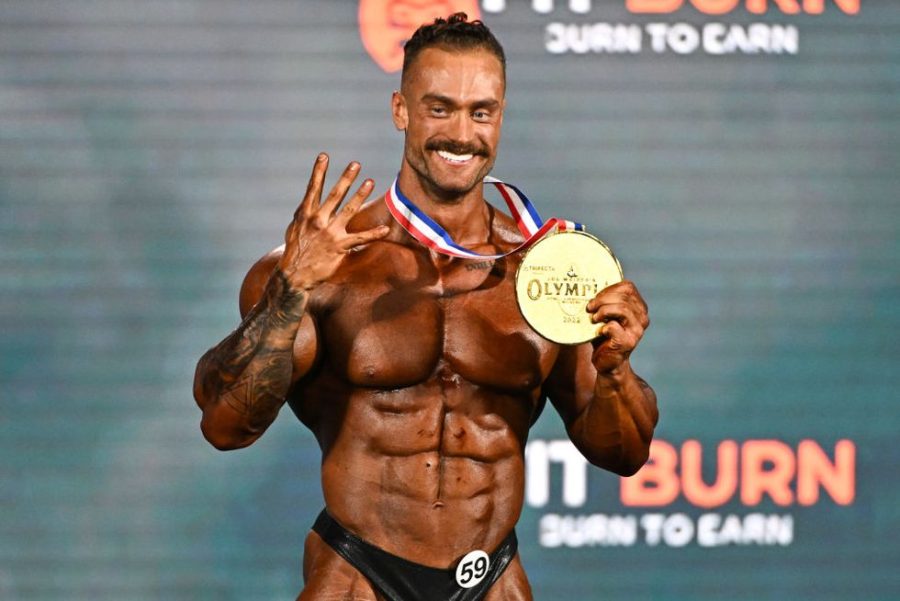Insightful Chronicles
Your daily dose of news, updates, and insights.
Sculpting Your Way to Superhuman: A Bodybuilder's Journey
Unlock the secrets of a bodybuilder's transformation and discover how to sculpt your dream physique with our superhuman journey!
The Science Behind Muscle Growth: Understanding Hypertrophy
Muscle growth, scientifically known as hypertrophy, is a complex physiological process that occurs when muscle fibers undergo stress and subsequent repair. During resistance training, microtears occur in the muscle fibers, prompting the body to initiate a healing process that involves the activation of satellite cells. These cells donate nuclei to the damaged muscle fibers, allowing them to increase in size and strength. This adaptation occurs not only due to the mechanical load but also through metabolic stress and muscle tension, which play crucial roles in stimulating hormonal responses, particularly the release of testosterone and growth hormone.
Understanding the two main types of hypertrophy is essential for optimizing muscle growth. Myofibrillar hypertrophy focuses on increasing the density and strength of muscle fibers, while sarcoplasmic hypertrophy emphasizes the expansion of the muscle's energy-storing capacity. Athletes and fitness enthusiasts can manipulate their training regimens to emphasize one type over the other. Incorporating a variety of training techniques, such as progressive overload, compound lifts, and adequate recovery, is vital for maximizing hypertrophy and achieving desired results in muscle growth.

Essential Nutrition for Bodybuilders: Fueling Your Superhuman Journey
Essential nutrition plays a vital role in the success of bodybuilders, serving as the foundation upon which progress is built. To maximize muscle growth and recovery, it is crucial to focus on a balanced intake of macronutrients: proteins, carbohydrates, and fats. Aim for a diet that includes
- High-quality proteins: Chicken, fish, eggs, and legumes are excellent sources
- Complex carbohydrates: Oats, brown rice, and sweet potatoes provide sustained energy
- Healthy fats: Avocado, nuts, and olive oil can support hormone production
These components not only fuel workouts but also help in repairing and building muscle tissue.
Additionally, staying hydrated is paramount for optimal performance and recovery in bodybuilding. Water is essential for nutrient transport and muscle function, and bodybuilders should aim to drink at least 3 to 4 liters of water daily. Including micronutrients such as vitamins and minerals in your diet through fruits and vegetables is also crucial, as they aid in recovery and overall health. Supplements like whey protein, creatine, and branched-chain amino acids (BCAAs) can further enhance performance, but they should complement a solid nutritional foundation rather than replace it. Treat your body with respect, and it will reward you with the strength and endurance to fulfill your superhuman journey.
Top 5 Myths About Bodybuilding: Separating Fact from Fiction
Bodybuilding is often shrouded in myths that can mislead both beginners and seasoned enthusiasts. One of the biggest myths is that lifting heavy weights is the only way to build muscle. In reality, muscle growth can occur through various methods, including higher repetitions with lighter weights, as well as bodyweight exercises. This misconception can discourage those new to the fitness world from exploring other effective training styles.
Another common myth is the belief that bodybuilders must consume an excessive amount of protein to see results. While protein is essential for muscle repair and growth, the notion that more is always better is false. The body can only utilize a certain amount at a time, and too much protein can lead to unnecessary strain on the kidneys. To effectively maximize muscle gains, a balanced diet that includes a variety of nutrients is crucial, dispelling the idea that protein alone can build a perfect physique.